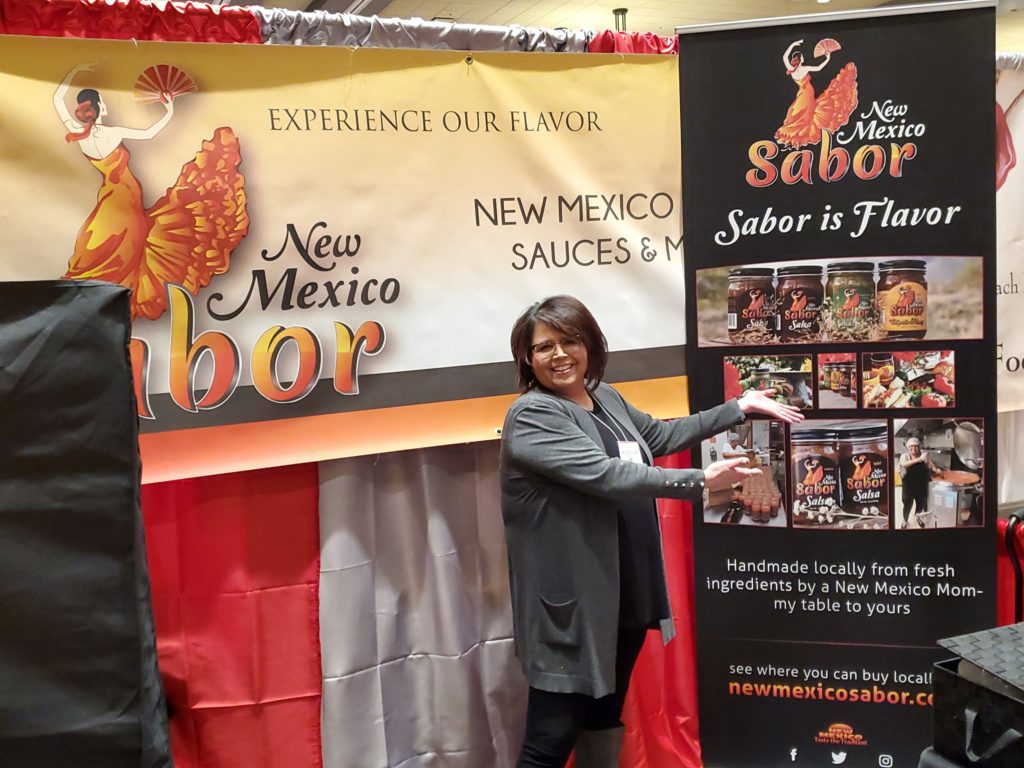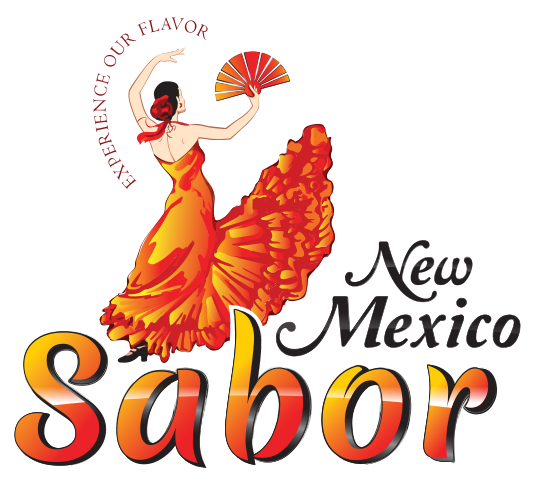Carla Gallegos-Ortega’s homemade salsa were a hit with family and friends for as long as she can remember. In 2017, she entered the Salsa Festival in Albuquerque’s Old Town and enlisted her daughter and a few friends to help her produce 16 gallons of salsa in an outdoor tent.
She left that festival with an award and the ambition to become a food entrepreneur.
Later that same year, she discovered The Mixing Bowl, a commercial kitchen that offers a food-business incubation program and hourly kitchen rental. By June 2018, Gallegos-Ortega had a license for her business, New Mexico Sabor; a health department permit; training in best practices; and membership at the commercial kitchen.
She started selling her traditional salsa at local festivals, and today her four-product line is available online and at select grocers and awards keep coming: Her original Traditional Medium Salsa and specialty Chipotle Honey Salsa each won awards from the 2020 Scovie Awards Competition sponsored by Fiery Foods and Barbecue Central.
Even though she also has a full-time job, 2020 was the year Gallegos-Ortega was ready to expand New Mexico Sabor.
She applied to the New Mexico Small Business Assistance program, which helps businesses facing technical challenges obtain expert advice from two of the state’s national laboratories. Technical assistance from New Mexico Manufacturing Extension Partnership (NM MEP) and several New Mexico universities is offered through cooperative agreements with the labs. Gallegos-Ortega’s business won a grant to work with New Mexico MEP on improving control of her inventory and designing a facility of her own to make production less complicated.
New Mexico MEP Innovation Director Jeff Abrams began by observing Gallegos-Ortega at work in her rented kitchen so he could help her develop an inventory control plan and visualize the layout of her own commercial kitchen. His observations led to immediate changes in production processes.
In the past, canned ingredients were handled multiple times. After ingredients were added to the kettle, cans were set aside to be cleaned for recycling. “Jeff said no, no, no, we should only be touching those cans once,” Gallegos-Ortega said.
Abrams also showed her how to eliminate the multiple steps involved with transferring salsa from the kettle to individual jars before being placed in boxes. “We have less repetition; the first time we put it into practice, we probably cut off an hour of time,” she said. “It cut [costs] in three areas: employee time, kitchen time and equipment rental.”
Abrams created a simple spreadsheet to track inventory used by each of the business’s recipes that minimizes the cash needed for inventory and storage space at the kitchen. Little changes in other parts of the process have also saved kitchen time: defrosting frozen ingredients the night before production so they’re ready to go and streamlining cleanup by hand-washing large containers instead of repeatedly running them through the kitchen’s dishwasher. “There’s little things that we didn’t have to do a lot of training on,” she said.
And that training will pay off when she finds a space of her own.
“He showed me that it is a possibility for me to get my own place,” she said. “I didn’t know how much space I would need, but it’s only 900 to 1,000 square feet. He showed me this is doable.”
Get more information about New Mexico MEP services and the NMSBA Program. Find New Mexico Sabor products.
Finance New Mexico article 685.


